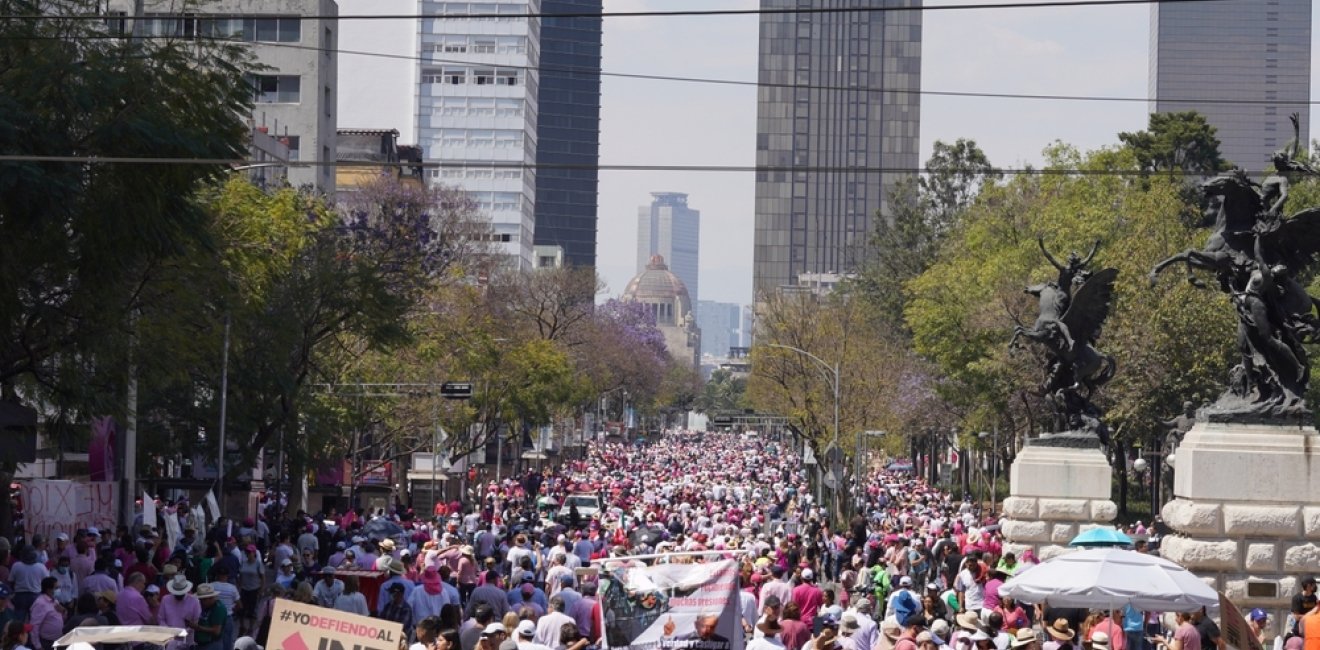On June 2, 2024, the largest election in Mexican history will take place. This is not only due to the number of voters—according to estimates from the National Electoral Institute, around 97 million citizens are expected to cast ballots—but also because of the number of government positions that will be up for election. It is important to remember that in addition to the Presidency, the complete reelection of Congress, as well as local elections to choose 31 state congresses, municipal governments in 30 states, and nine governorships are also at stake.
During the current administration, presidentialism has regained a particular significance, rendering it necessary to analyze the position and desires of the head of the executive branch, whether it concerns Congress, state governments, or even autonomous organizations. While it is true that initiatives from the executive branch have historically enjoyed privileged treatment in previous administrations, over the past five years, the modus operandi of the Congress being aligned with the government has been a constant and even one of the hallmarks of the current administration. The former was particularly obvious during the first half of the term when Morena and its allies had a qualified majority in the Chamber of Deputies.
Although we have observed almost complete harmony between the actions of Morena's lawmakers and the President's projects during this term, it is expected that the change of government in 2024 will lead to greater independence of the legislative branch and possibly more freedom in the actions of local governments. This, combined with the challenges the new president will face, could mean a greater need to create agreements and consensus with the opposition for decision-making. Therefore, it will be essential to closely monitor the agendas and projects of both federal and local legislators as key elements of dialogue.
Regardless of who emerges as the winner, we are not expected to have a Congress with the majorities we saw in 2018. Similarly, as previously mentioned, we do not expect to see significant political alignment this upcoming term. In this regard, the search for alternatives to advance reforms will be indispensable, as will increased spaces for dialogue and interaction with relevant actors and civil society. The same will be true for dynamics at the local level, where we may see greater autonomy of state governments and, therefore, projects heading in different directions.
We must not overlook the fact that achieving a pluralistic and autonomous representation that addresses our country's needs requires active citizen participation. In this regard, the role of civil society, including the business sector, should be recognized. The private sector has a responsibility to monitor and complement government proposals. Therefore, businesses, chambers, and associations must anticipate electoral processes, establish efficient channels of communication, define priorities, set goals, develop action plans, and propose specific initiatives for future leaders. Furthermore, during the transitional period and with the advent of the new administration, the general public needs to remain vigilant to promote the construction of a more democratic society with enhanced representation.
In conclusion, the 2024 election will usher in new dynamics at all levels. The newly elected president will encounter substantial challenges related to fiscal matters, security, poverty, and healthcare. These dynamics will transform the relationships between different levels of government, and in order to strengthen our democracy, it will be crucial for the opposition, civil society, and the private sector to maintain their strength and active engagement in discussions. Additionally, we cannot forget the challenge that the renewal of the USMCA in 2026 will entail—as the new government will have to face the strong possibility of new leadership in both the United States and Canada. As such, it will require a perfectly aligned internal strategy to prioritize the institutional aspects of the trilateral relationship.
Authors



Mexico Institute
The Mexico Institute seeks to improve understanding, communication, and cooperation between Mexico and the United States by promoting original research, encouraging public discussion, and proposing policy options for enhancing the bilateral relationship. A binational Advisory Board, chaired by Luis Téllez and Earl Anthony Wayne, oversees the work of the Mexico Institute. Read more

Explore More
Browse Insights & Analysis
Greenland’s New Governing Coalition Signals Consensus

The Future of France's Far-Right Party

Ukrainian Issue in Polish Elections



